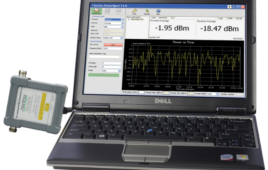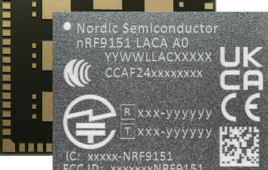 A U.S. judge on Monday rejected a request by Samsung Electronics Co. to lift a ban on U.S. sales of its Galaxy Tab 10.1, dealing a third legal setback to the South Korean firm in just a week, as it braces for a make-or-break patent trial later this month with Apple Inc.
A U.S. judge on Monday rejected a request by Samsung Electronics Co. to lift a ban on U.S. sales of its Galaxy Tab 10.1, dealing a third legal setback to the South Korean firm in just a week, as it braces for a make-or-break patent trial later this month with Apple Inc.
Apple and Samsung, the world’s largest consumer electronics corporations, are waging legal war in around 10 countries, accusing each other of patent violations as they vie for supremacy in a fast-growing market for mobile devices.
U.S. District Judge Lucy Koh in San Jose, California, rejected Samsung’s request to lift her June 26 order to halt sales of the tablet, which runs on Google Inc’s Android and goes toe-to-toe with the iPad.
Koh also slapped a pre-trial ban on sales of Samsung’s Galaxy Nexus phone on Friday.
Apple sued Samsung last year, accusing the South Korean electronics maker of “slavishly” copying the iPhone and iPad. Samsung denies the claim and countersued. The case is due to come to court this month and could have implications in other jurisdictions.
The affected tablets and smartphones are unlikely to have major impact on Samsung’s earnings, as the firm has since introduced upgraded models. But the back-to-back loss is significant because pre-trial injunctions are rarely granted. The two firms’ U.S. trial is set on July 30.
“Samsung is disappointed with the court’s decision that denied our motion to stay. We believe today’s ruling will ultimately reduce the availability of superior technological features to consumers in the United States,” Samsung said in a statement.
The district court is not the last chance for Samsung to get the injunction lifted. Samsung has also appealed to a federal appeals court in Washington, DC, which has exclusive jurisdiction over intellectual property disputes.
An Apple spokeswoman reiterated the company’s previous comment that Samsung’s latest products look a lot like the iPhone and iPad.
“This kind of blatant copying is wrong and, as we’ve said many times before, we need to protect Apple’s intellectual property when companies steal our ideas,” the spokeswoman said.
Samsung’s Galaxy touchscreen tablets are considered by many industry experts to be the main rival to the iPad, though they are currently a distant second to Apple’s devices. Microsoft and Google are also preparing tablet offerings.
Apple sold 13.6 million iPads in January-March to control 63 percent of the global tablet market, according to research from Display Search. Samsung sold 1.6 million tablets, giving it 7.5 percent of the market.
Samsung, which has various tablet line-ups with different sizes from 7 inches to 10.1 inches, introduced the Galaxy Tab 10.1 in June last year and unveiled an upgraded version, the Galaxy Tab 10.1 II, in May.
In smartphones, the banned Galaxy Nexus was introduced late last year, and Apple is also seeking a preliminary injunction of the Galaxy S III, the third generation of Samsung’s flagship smartphone, which went on sale late last month in the U.S. market.
“The impact on Samsung is limited as shipment volume of Galaxy Tab 10.1 and Nexus are quite small,” said Lee Sun-tae, an analyst at NH Investment & Securities.
“Even if Apple wins an injunction request on Galaxy S III, Samsung will have plenty of time to get around it, as it normally takes quite a long time for a court to process such requests.”
The case is U.S. District Court, Northern District of California, is Apple Inc v. Samsung Electronics Co Ltd et al, 11-1846.
(Additional reporting by Sakthi Prasad and Miyoung Kim; Editing by Richard Pullin)
Article provided by Reuters
Posted by Sara Cohen, Editorial Intern
July 3, 2012




